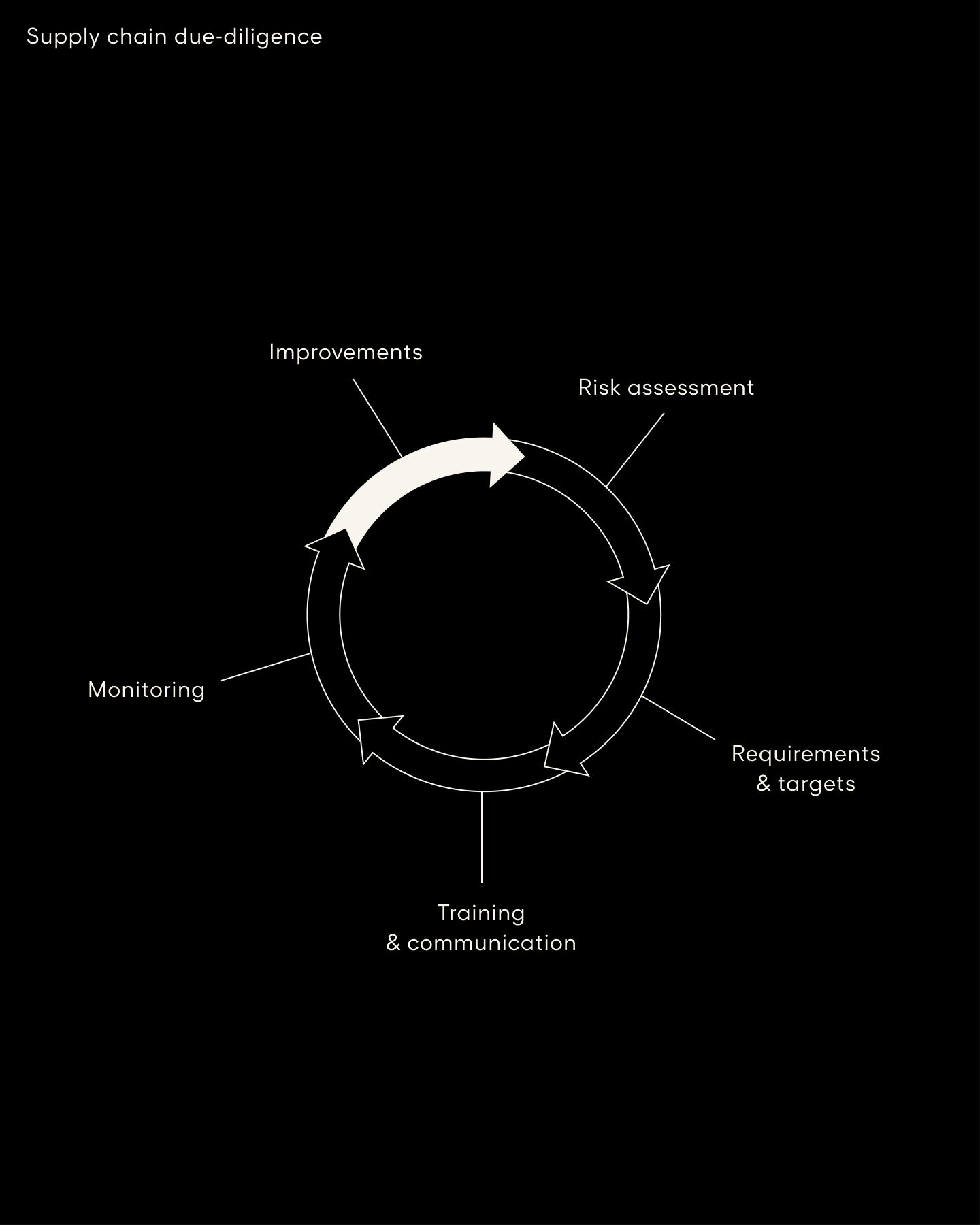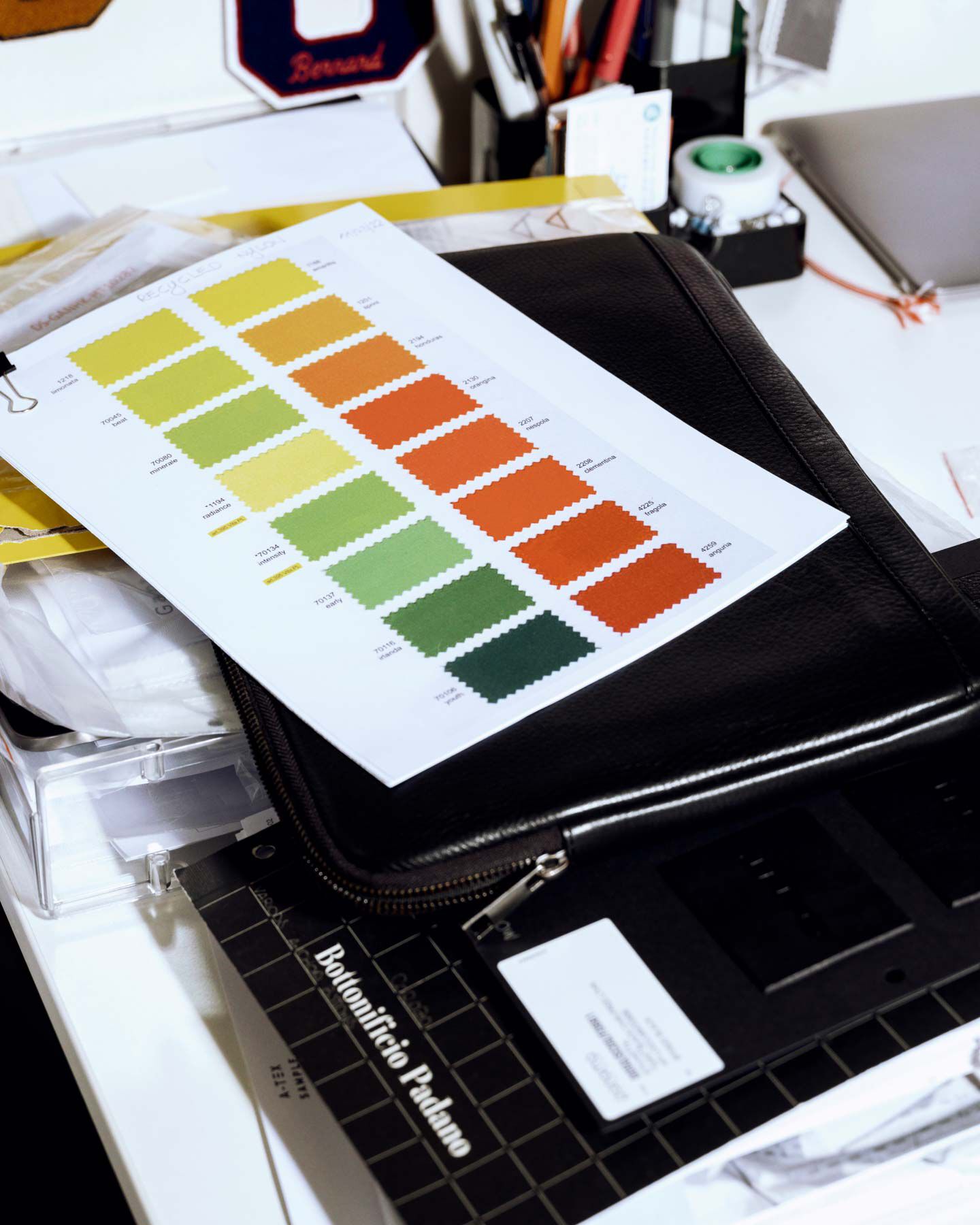
Supplier
Sustainability
Excellence
Since our beginnings in 1949, GANT has focused on creating products with timeless design and durability at the forefront. Working together with the right business partners is fundamental to achieve this. The supply chain also holds many significant environmental and social risks which is why we work in close collaboration with our business partners to identify and mitigate environmental and social risks, but also to seize opportunities to contribute to a positive and sustainable development. In 2021, GANT worked with around 50 business partners for the development and manufacturing of our products.
All tier 1 business partners are disclosed in our factory list which can be found here.
Strategies & Reports

Supplier sustainability program
We believe in mutually respectful, cross-cultural collaboration and we engage in open dialogue with partners to ensure that relationships continue to improve. The supplier sustainability program is a risk-based approach to due-diligence in the supply chain with the aim to identify and mitigate risks related to human rights, labor, the environment and corruption.
The Code of Conduct is aligned with international conventions and frameworks such as the OECD, International Labor Organization’s Conventions and Recommendations, United Nations Global Compact, Universal Declaration of Human Rights, Convention on the Rights of the Child and The Convention on the Elimination of all Forms of Discrimination Against Women.
We evaluate compliance in accordance with our Code of Conduct and through audits conducted by a third party. GANT is a member of AMFORI BSCI, but we also work with the following third-party standards: SEDEX, WRAP, ICS and SA8000. From 2021, we also recognize HIGG vFSLM as audit standard. Semi-announced third-party audits on a regular basis are mandatory for all suppliers regardless of their country.
The sustainability policies include the Animal Welfare Policy, Environmental Policy, Packaging Policy, Reduce Reuse Recycle Policy, Transport Policy, Water Policy, Responsible Material Policy and the Restricted Substance List.
To follow up on the environmental performance of factories and to have as a foundation for dialogue with business partners, GANT uses the HIGG Factory Environmental Module (HIGG FEM). HIGG FEM is a requirement for all factories producing for GANT. In 2022, 92% of GANT’s products were produced in a factory that uses HIGG FEM for environmental reporting.
The supplier sustainability program covers mainly tier 1 factories with the aim of expanding to strategic suppliers in tier 2 and 3 in the coming years.
The Code of Conduct and sustainability policies can be found in the document section here.

Chemical management
The use of chemicals is present throughout GANT’s value chain, both in growing natural fibers such as cotton, and also during production, particularly for dyes and finishes. Residues of hazardous chemicals in products can impact human health, and discharge of hazardous chemicals during production risks impacting the environment. GANT has a restricted substance list in place which limits the use of substances in production processes or that can be present in the final product. This policy is compliant with and stricter than the REACH-legislation. GANT allows no PVC, biocides or silver ions in products and continuously works to improve the routines to ensure product quality and security, and consequently, reduces the environmental impact from products.
The restricted substance list can be found under documents here.

Logistics
GANT’s Transport Policy aims to minimize the negative impact on the environment by striving to minimize airfreight and always have full fill rates. Transport flows are optimized in order to enable cost efficiency and reduce environmental impacts.
GANT utilizes logistic centers in several countries. The main distribution center is located in central Germany, from which regional warehouses for GANT’s markets are supplied with products. All warehouses are owned and operated by third parties. Sustainability is an integral part of the procurement process of logistic centers. Business partners are evaluated from a sustainability perspective and must commit to GANT’s business partner Code of Conduct before operating.
